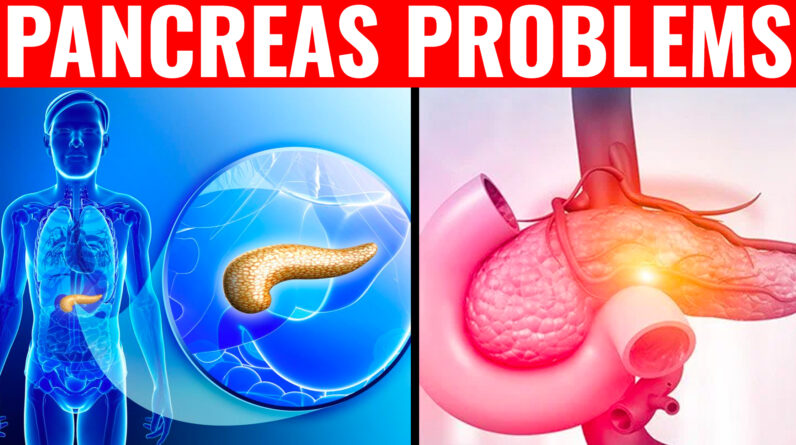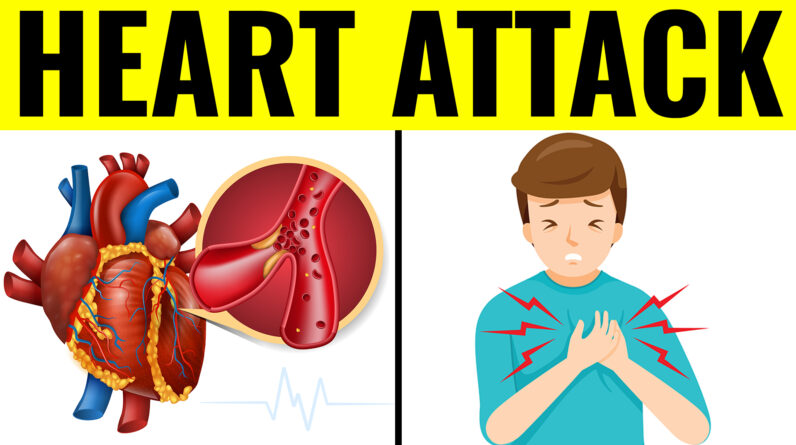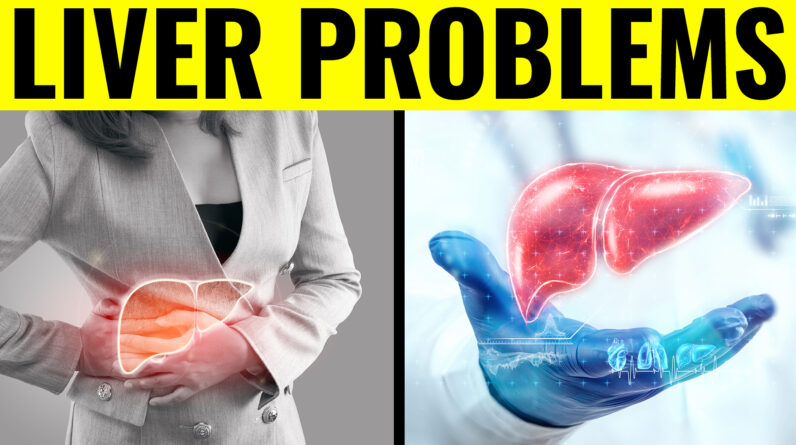
For most of us, the pancreas is not an organ that we think about very often. In fact, I can bet that there are a number of people watching this article that have no idea of what the pancreas does.
However, whether we know of this organ and/or what it does or not, we would run into issues if it stops functioning properly or stops functioning at all.
This is because the pancreas produces enzymes that help with digestion, and also produces hormones that help regulate the way our bodies process sugar. So, very important.
Now, I’m sure that from the functions of the pancreas, you can begin to imagine what the signs of a damaged pancreas would be. But before we get into explaining them, there are a few things you need to know.
First, the pancreas is located behind the stomach in the upper abdomen. Second, the major problem that a pancreas can have is called pancreatitis, which is an inflammation of the pancreas.
Now, there are two types of this. One is acute pancreatitis which usually starts suddenly but lasts for a few days. The other is chronic pancreatitis which usually lasts for many years, sometimes lifelong, and happens after there have been multiple cases of acute pancreatitis that have damaged the walls of the pancreas.
Now that we are all caught up, let’s look at the signs of pancreatitis.
1. Upper Abdominal Pain
Considering the fact that the pancreas is located in the upper abdomen, it is easy to see why an inflammation of the pancreas would lead to pain in the upper abdomen. This is why I had to mention the location of the pancreas at the beginning of this article.
Now, pancreatitis should not be confused with appendicitis. The appendix is located on the lower right side of the abdomen while the pancreas is located on the upper part of the abdomen. The difference in the location of the pain should tell you what the problem is.
That said, there is a general pattern to this pain. It typically starts in the middle or left side of the abdomen, and can come suddenly or happen gradually.
Some people have described the pain as a burning or shooting pain, and it usually lasts for several hours or days at a time. Also, for some people, especially if the pancreatitis is caused by gallstones, the pain could get worse after eating.
2. Tenderness When Touching the Abdomen
Remember that with pancreatitis, the pancreas is inflamed, which means it is swollen. So, it makes sense that that part of your abdomen would be tender to the touch and also quite swollen. The swelling might not be something that is easily identified, though, and it kind of depends on the severity of the disease.
3. Abdominal Pain that Radiates to the Back
Sometimes, the pain coming from your pancreas and, by extension, your upper abdomen, might radiate to your back. On the one hand, it could be that you are just experiencing phantom pain as a result of what is going on in your abdomen.
But on the other hand, and probably more plausible, the back pain could be the result of the inflammation of the pancreas leading to decreased spinal extension. Decreased spinal extension results in a reduction in motion, which could be responsible for the pain that people with pancreatitis experience in their backs.
As a result, lying on one’s back could make the pain worsen, while bending forward or curling up could ease the pain.
4. Fever
A fever is your body’s attempt at fighting off an infection and protecting you. So, if someone who has pancreatitis is experiencing fever, it is because the person’s body is trying to fight off the infection that led to the inflammation in the first place.
5. Unexplainable Weight Loss
It is pretty common for someone with pancreatitis to lose weight, even without any changes to their diet and physical activities. Why? Well, if you will recall, one of the functions of the pancreas is to produce enzymes, called the pancreatic enzymes, that are necessary for absorbing food.
Now that the pancreas is impaired, it would be unable to produce enough pancreatic enzymes, which would make it difficult for the body to digest food and extract nutrients necessary for nourishment. This is why someone with pancreatitis could eat hearty meals and still continue to lose weight.
6. Diarrhea
While the body is unable to properly digest food and absorb nutrients, if the person continues to eat, all that food must go somewhere. So, it all just comes out as number 2, undigested.
More specifically, though, someone with pancreatitis might find that their stools are oily and smellier than usual. This is because without those pancreatic enzymes, the body would find it particularly difficult to process fat. So, basically all the fat that the person consumes comes out as number 2.
7. Rapid Heart Rate
If the infection continues to spread or the pancreas damages so much that it starts to leak toxins into the blood, it could affect the health of the heart. This could be the reason for the rapid heart rate or rapid pulse that some people with pancreatitis experience even when they have not been engaged in any rigorous activity.
8. Nausea and Vomiting
Nausea and vomiting are both a quite common presenting complaint of pancreatitis, especially acute pancreatitis. The reason this happens could have something to do with the fact that a damaged pancreas messes with digestion because there just isn’t enough pancreatic enzymes to break down the food.
More research has to be done to determine causation, though, but the relationship has definitely been established.
9. High Blood Sugar
And finally, high blood sugar could be symptomatic of pancreatitis. What happens is that chronic pancreatitis can cause significant damage to the pancreas, significant enough that it could impair the organ’s ability to produce insulin.
If this happens, the body won’t have enough insulin to act on the sugar that one consumes, causing a consistent spike in blood sugar.
All that said, what exactly should you do if you think you might have pancreatitis? Well, you need to report to your doctor as soon as possible.
Both acute and chronic pancreatitis are treatable, but they have to be detected early enough. This is because if acute pancreatitis is left untreated or unattended for too long, it might continue to happen and then progress to chronic pancreatitis. And if chronic pancreatitis is left untreated for too long, it could actually cause pancreatic cancer.
There are other complications that could arise from untreated pancreatitis including pancreatic necrosis which is basically the death of pancreatic tissues as a result of insufficient blood flow, pseudocysts which is basically the collection of fluid pockets on the pancreas, and kidney failure. So, it is important that you consult with your doctor.
The treatment options that your doctor will offer will depend on the kind of pancreatitis that you have. For acute pancreatitis, treatment options could include:
- Strong drugs for the pain
- Intravenous fluids
- Low-fat diet or fasting to allow your pancreas recover.
- Gallbladder surgery if the pancreatitis was caused by gallstones.
- Pancreas surgery.
For chronic pancreatitis, treatment options include:
- Strong pain meds, while also making sure that the person doesn’t get addicted to them.
- Pancreatic enzyme replacement therapy.
- Insulin to treat diabetes.
- And surgery
That said, if you are not presenting with any of those symptoms but are thinking of ways to prevent pancreatitis, there are a few things you can do. Doing these might not exactly prevent you from developing pancreatitis, but they could reduce your chances. They include:
- Reduce alcohol consumption because many cases of pancreatitis are a result of alcohol abuse.
- Quit smoking.
- Eat healthy.
- And if you’ve been prescribed meds for pancreatitis, make sure to take them so that it doesn’t return.
Now, as was mentioned earlier, doing these things or making these lifestyle changes could reduce your chances of developing pancreatitis. However, there are conditions that increase a person’s chances of developing pancreatitis anyway. And these conditions include:
- Consuming too much alcohol.
- Gallstones
- Autoimmune diseases
- Surgery
- Trauma
- Infections
- Metabolic disorders
- Cystic fibrosis
- Family history of the disease
If you have or have been through any of these conditions, it is important that you discuss with your doctor to determine how likely you are to develop pancreatitis and what to do about it. You might also be subjected to a couple of tests to determine that damage has not already been done to your pancreas.







